If you’re running a PPC ad today, you want to get as much traffic to your website as possible and ultimately make sales. Sounds good, right?
Table of Contents
- 1. Bidding on wrong keywords
- 2. Wrong targeting
- 3. Insufficient or no A/B testing
- 4. Not setting negative keywords
- 5. Poor ad copy
- 6. Not a match between ad and landing page
- 7. Glorifying vanity metrics
- 8. Ignoring click fraud
- 9. Bidding for the first position for every keyword
- 10. Using the wrong keyword match
- 11. Neglecting ad quality score
- 12. Not bidding for brand name
- 13. Improper monitoring of campaign
- 14. Underutilizing ad extension
- 15. Ineffective sales funnel
- 16. Ignoring customer lifetime value (CLV)
- Conclusion
In fact, many marketers are already achieving that. In the State of PPC study by Hanapin marketing, 78% of advertisers felt good about their PPC campaigns, while 20% felt like their PPC was doing an ok job.
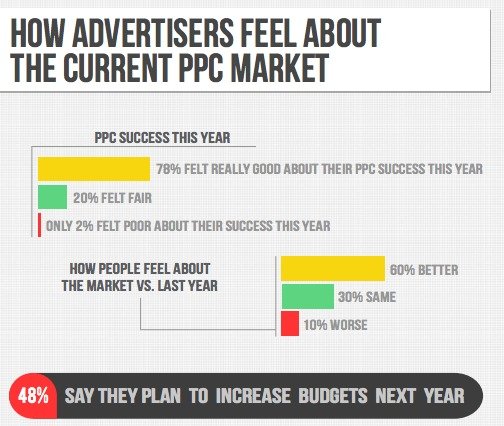
Nevertheless, there’s rarely a perfect ad. But for many marketers, the good ads usually make up for the poor ones and with constant testing you can always improve.
Let’s begin.
1. Bidding on wrong keywords
Spending money doesn’t mean you should get lazy on keyword research. To make your money work, you need to actively do keyword research and figure out what your potential customers are looking for.
Likewise, you need to choose a keyword that has a specific intent for your digital marketing campaign. Bidding on the wrong keywords may lead to clicks, but no conversions.
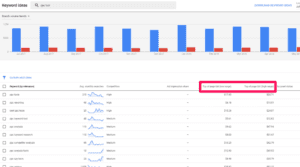
It’s also important to consider the amount of competition for keywords you want to bid on.
2. Wrong targeting
Maybe everybody in the world can find a use for your product, but it’s inadvisable to target the whole world because that would be extremely expensive. And realize that people in different nations have different purchasing powers.
No matter how good your $500 shoe is, few people will buy in India or Africa. So when targeting your ad, it’s vital to have a location objective in mind. It can be broad like a whole country or restricted to a city, depending on what your budget is.
Not considering geo-targeting in your strategy means you’ll lose a lot of money because your ad will show up in places where people won’t have access or want to buy your product.
Likewise, if you feel your ad should not show up in some places, you should exclude those places in your PPC campaign.
Through strategic targeting and bid optimization, Georgia Eye Associates improved their CTR from 0.95% in September to 2.8% in April. They also reduced their cost-per-click (CPC) from $4.90 to $2.31.
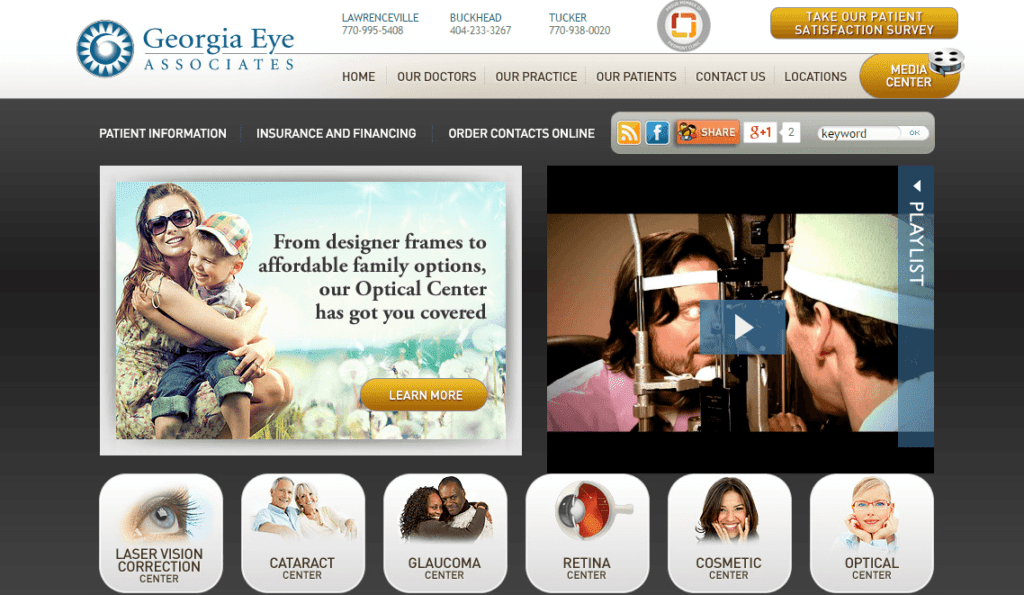
3. Insufficient or no A/B testing
The only way to get better in all aspects of your business is to know what works and what doesn’t work and continue with what does. No matter what you do, there’s a constant need for testing. And that includes your PPC ads.
A strategy that may have worked for a business last year could’ve stopped working this year. And you also have to consider that you’re dealing with all different sorts of people with various forms of motivation.
One way to know what your visitor responds to is to perform tests and track their reactions to it. It costs a bit more money initially to get into A/B testing, but it will save you a lot in the long run.
Failure to perform tests means that an ineffective process may continue to stay in place, causing your business to bleed money.
By A/B testing the presence of a navigation bar on a PPC landing page, Dustin Sparks increased the page’s conversion by 336%.
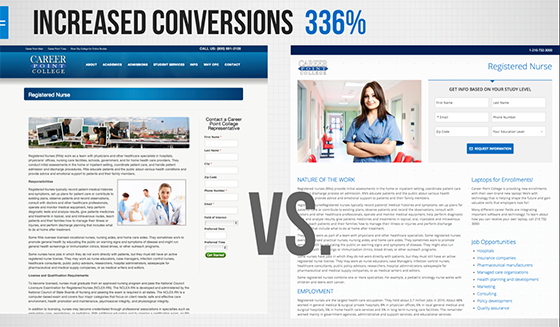
4. Not setting negative keywords
While bidding for keywords, you’re trying to appear on the search engine results page (SERP) for those terms. However, what are the terms you don’t want to show up for?
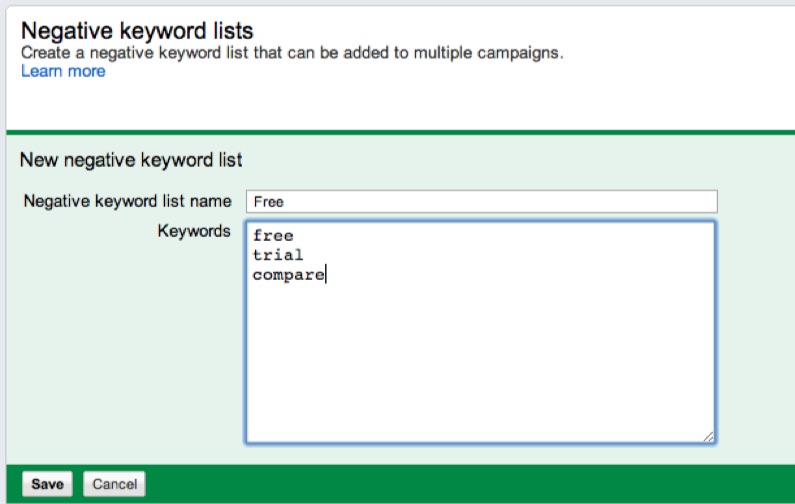
For instance, if you’re running PPC ads for a paid video converter, you should add “free video converter” as a negative keyword. This is because everyone searching for that term is not looking for a paid product and are less likely to become one of your customers.
5. Poor ad copy
Are you writing ads to make yourself happy or to please your potential customers? To attract searchers, you only have a few words to work with, so you have to make them count. The headline and description of your ad are all you have to make a good first impression.
Look below- this is an ad that tells people not to use AdWords editor. The ad loses credibility right off the bat with this tactic so is it a coincidence that the company is now out of business?

With a poor ad copy, you CTR plummets and you get nothing for what you’ve spent. Therefore, to write a good copy for your prospects then you need an accurate buyer persona of your ideal customer.
From the outside looking in, put yourself in the place of your potential customer. What are the problems they’re looking to solve with your products?
How can you write your ads so that your benefits indicate a solution to those problems?
6. Not a match between ad and landing page
Your ad title and description should always give a summary of what is present on your landing page.
When searchers click through to your landing page, they want the offer that lured them to you in the first place. If they see something different, then they are likely to bounce right out of your site and go to the next business.
And once they do that- they’re gone, they’re toast. They’ll bounce off your page faster than you can say PPC. This will reduce the quality of your ads and it means you’ll pay more to advertise. Likewise, you’ll lose potential leads and customers which defeats the whole purpose.
This is an ad with the call to action “Access the Guide”.

But on the landing page, there’s nothing about the guide. The person who clicked through is obviously looking for the guide.
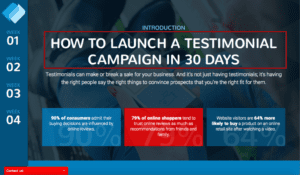
That one is not so great, but here is an example that has a good match:

Because the landing page title corresponds with the title of the ad:
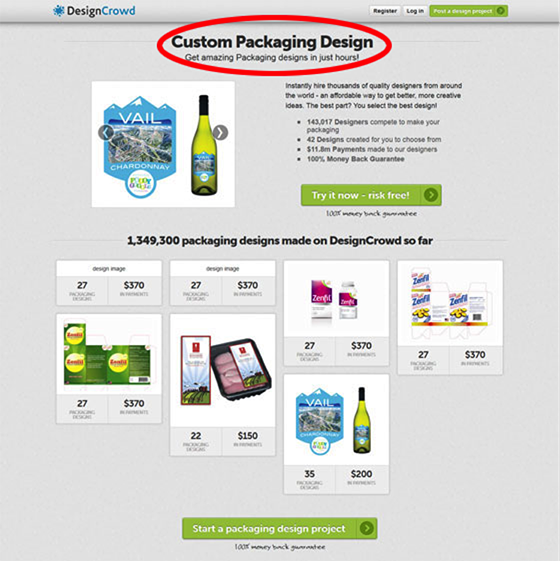
7. Glorifying vanity metrics
Of course, getting as many impressions and clicks for your ad as you can is necessary because you can’t make a sale without people not knowing who you are.
You’re literally paying for the click but you’re also paying for the sales that those clicks will generate and hopefully a healthy return on investment (ROI).
The click-through rate for your ad is important as it may help you advertise at a lower cost in the future.
But then you have to look at what portion of those visits are converting into leads. And what portion of the leads are you converting to customers?
When you optimize your ad for a better performance on the SERPs, your main goal is still to convert your visitors into leads and your leads into customers. These are the most important metrics of your digital marketing campaign.
8. Ignoring click fraud
This is most applicable to running a banner ad. If you notice a lot of traffic from a fraudulent website, it’s important to exclude that website from displaying your ads as this will just lead to a lot of wasted money.
A report by The&Partnership predicted that ad fraud would cost brands $16.4 billion in 2017.
Although these websites are usually penalized by Google over time, you will have lost a lot of money before Google takes action.
So be cognizant of this to avoid your money being wasted.
9. Bidding for the first position for every keyword
As with SEO, bidding for broad terms is a bad strategy and you’re not likely to achieve the results you’re looking for with it.
And with PPC, you’ll lose money after failing to rank any higher because the reality is that some companies have far deeper pockets than yours and will usually outbid you for those broad terms.
Another issue with bidding for broad terms is that you likely don’t know the user’s intent.
The cost is high and the visitors you gain after spending a lot of money may not be those that lead to conversions. Check out the example of such terms below:
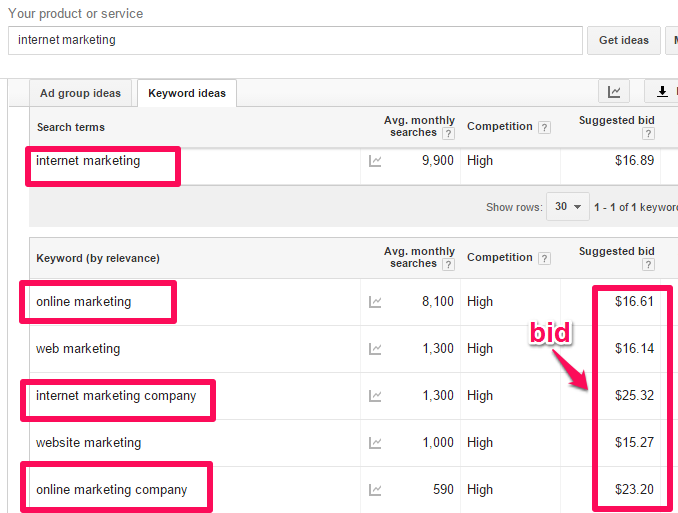
Bidding high for such a term could get you a lot of traffic but your conversions will be poor because it shows no intent to buy.
10. Using the wrong keyword match
There are 3 types of keyword match that you can use for your ad. These are:
- Broad match
- Phrase match
- Exact match
The broad match gives you a lot of flexibility regarding the keywords you show up for. Let’s say your keyword is “formal shoes”, Google can also show your ad for “formal footwear”.
This is applicable to products that have many synonyms.
And for phrase match, your ad will show up when your phrase appears in the exact order you have specified which can also work to your advantage. For instance, you can show up for “blue formal shoes” or “durable formal shoes” if your phrase is “formal shoes.”
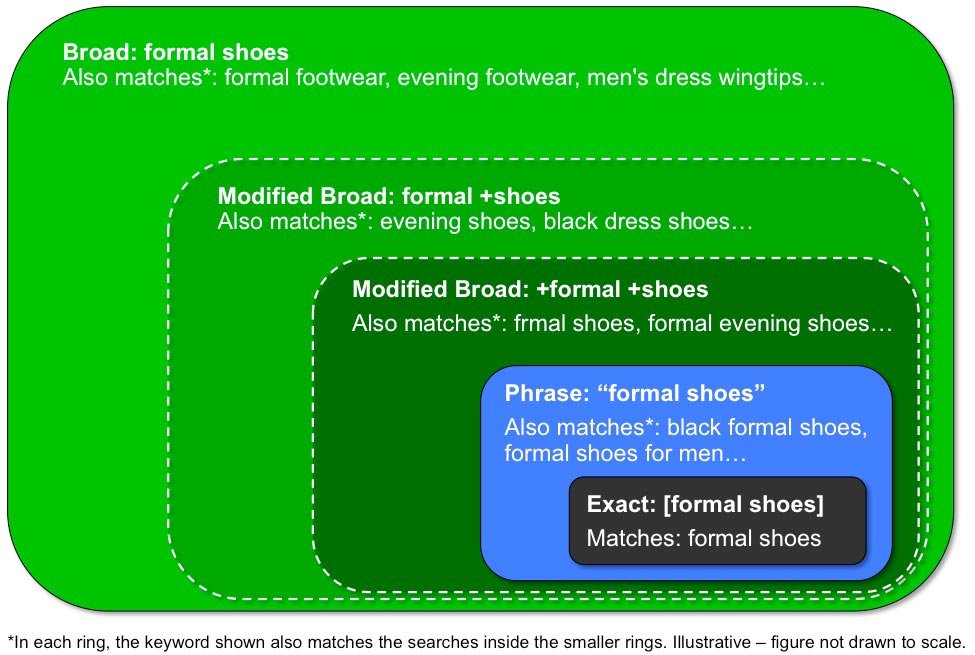
For an exact match, your ad will only show up when a search term matches your specified term exactly. This will usually have a lower traffic than the previous two because it’s more specific, but may have a higher conversion rate.
Choosing a keyword match may depend on how often people search for that term and your budget. If you’re unsure of which one to use, you can test the 3 and see which one works best.
11. Neglecting ad quality score
Your ad quality score determines your cost-per-click and also your cost-per-conversion. When you bid for a keyword, the two factors that determine your ad position is your ad quality score and your bid amount.
For instance, in the example below, the bidder with the lowest bid amount but the best quality score will have the best position on the SERPs.
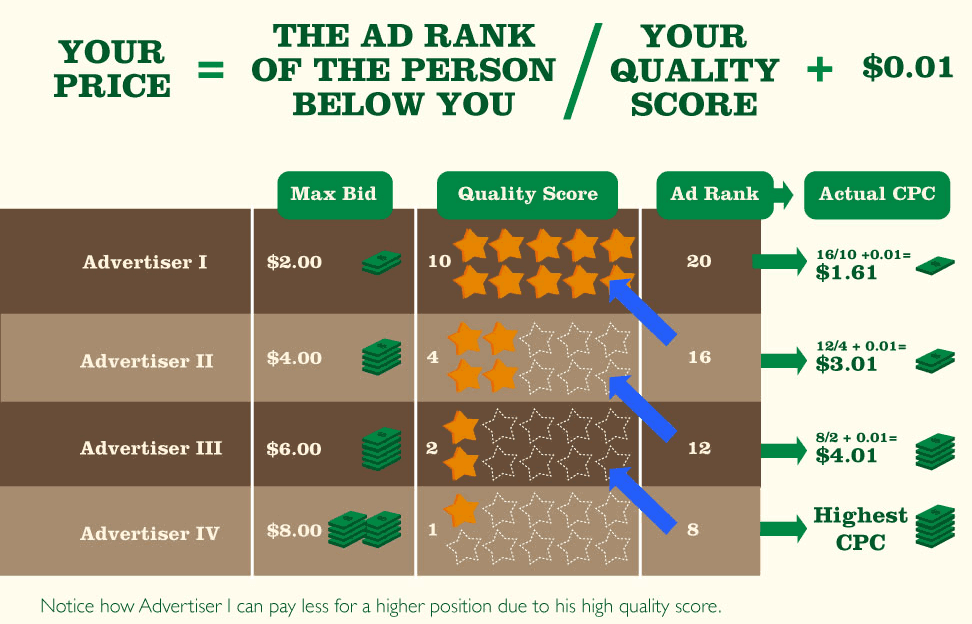
Some factors that determine your ad quality score are:
- Ad click-through rate (CTR)
- The relevance of ad text to your business
- Landing page quality and relevance between your ad and website
- Historical Google Ads account performance
- The relevance of each keyword to its ad group
When you improve these factors, it makes your ad better and Google will reward you with a higher ad rank at a lower cost.
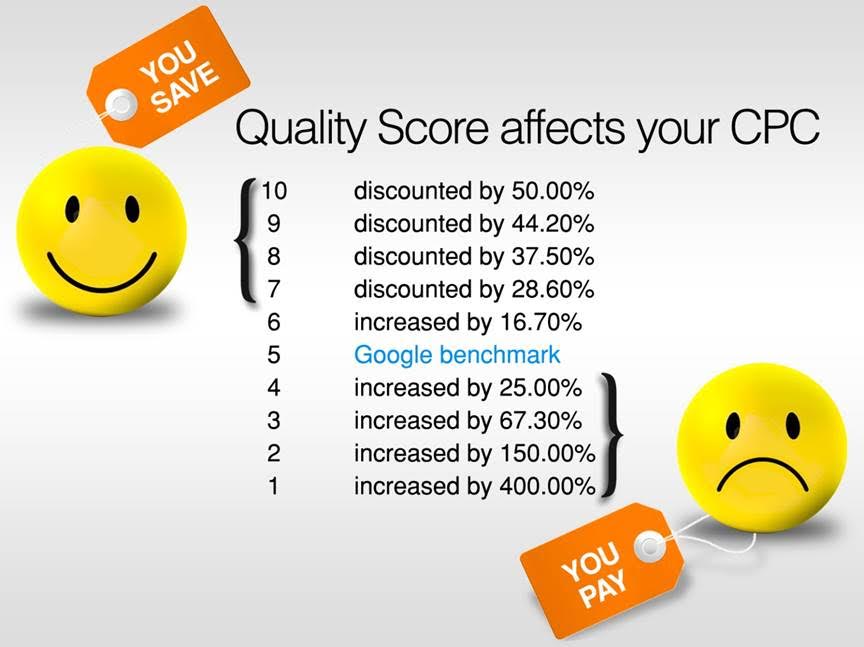
12. Not bidding for brand name
Many local businesses that use AdWords believe that a main search term for their brand will have them at the top of the organic rankings and since they’ve already dominated the term solely with their brand name alone that they don’t have to bid on it. But by doing this, you’re giving a space for your competitors to hijack your potential customers with a better offer that’s above your organically-cultivated result.
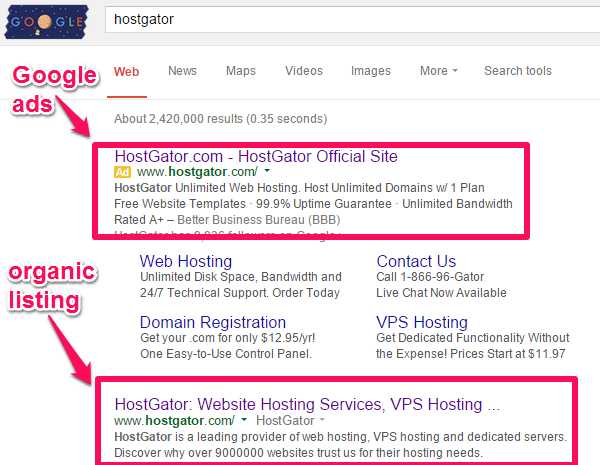
For most people searching for your brand name, they already trust you and are likely to buy your products. But for those that don’t know about you, this is why you must dominate the search results for your brand name. Another pro for bidding for your brand name is that it’s cheaper due to the high relevance of the term.
Growww Digital decided to run an experiment on the effect of brand ads. It removed brand ads and ones with the brand term in them. After a week, the brand experienced a 50% loss in revenue.
The company estimated it would have lost $22,500 in a month had the experiment run for that period.
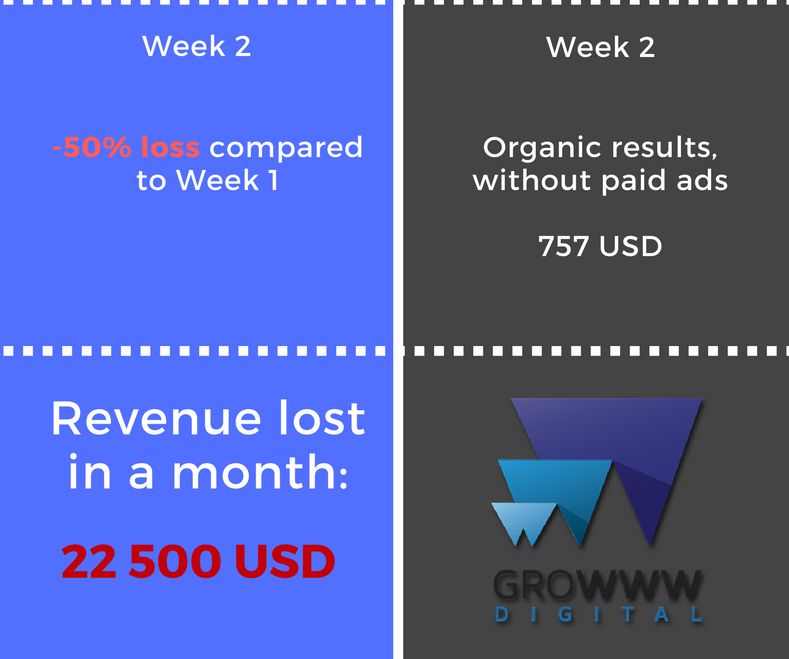
13. Improper monitoring of campaign
For effective PPC campaigns, a little slack in monitoring your ads can lead to a huge loss of money. There are many ways this could happen.
One of them is a sudden spike for a keyword, like the search for a term shot up due to a reason unrelated to your business. Of course, you’ll get more impressions and clicks but this traffic is unlikely to turn to your customers because the searchers don’t have the intent you want.
One other reason may be a seasonal change. Some keywords like “Black Friday” or “winter jackets” usually spike during certain times of the year. You should monitor your account for these changes.
If such a keyword runs for a few days without you paying attention, you’ll have lost a lot of money. Make it a point to check certain things on your account daily, weekly, monthly, and so on.
14. Underutilizing ad extension
Under each ad, there’s a space that advertisers can use to add more relevant links that searchers may find useful such as your phone number, address, or a direct link to a particular product.
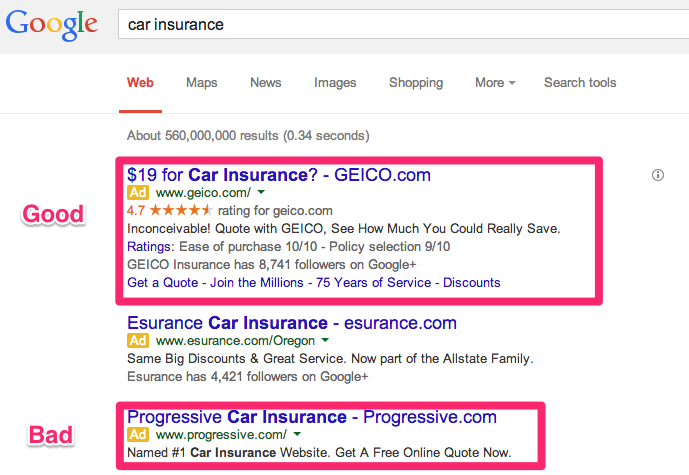
Despite the relevance of this, many marketers are not using it to their full advantage. These ad extensions help to increase your ad’s click-through rate (CTR) and also your ad quality score. With this, you can gain more visitors at a lower cost.
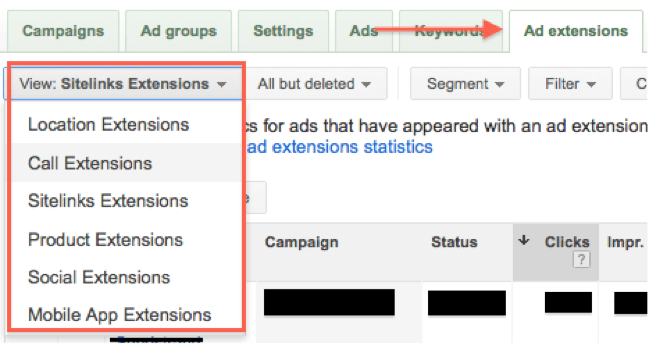
15. Ineffective sales funnel
When your ad attracts a visitor to your landing page, that’s the first stage of the buyer’s journey.
But how do you capture them as leads? Is it by dropping their email in your form? Or by calling the phone number on your landing page?
However they become a lead, think about how you move them from being a lead to being a customer. Without a sales funnel in place, it becomes difficult to turn your leads into customers as your money continues to go down the drain.
To make your PPC ads effective, you must have a series of content types in place that moves the person from stranger to prospect based on their engagement levels with your brand.
16. Ignoring customer lifetime value (CLV)
How much are you planning to spend to acquire a single customer? One of the common mistakes marketers make is not recognizing the value of a lifetime customer.
Without knowing this, you could be spending more money to acquire a new customer than they would spend on your product.
This would mean that for every new customer you gain through advertising, you’re actually losing money. This is an unsustainable strategy and it will not only exhaust your PPC money, but may even lead to bankruptcy.
HubSpot provides a way to calculate your cost per acquisition of customers through PPC ads in 3 steps:
- Cost of Customer Visits (CoCV)
- Cost of Lead Acquisition (CoLA)
- Cost of Customer Acquisition (CoCA)
For instance, let’s say you spend $1,000 on PPC ads to get 500 visits to your landing page. This would equate to $2 per visit. If 5% of your visitors become leads, then that would equate to $40 for each lead acquired.
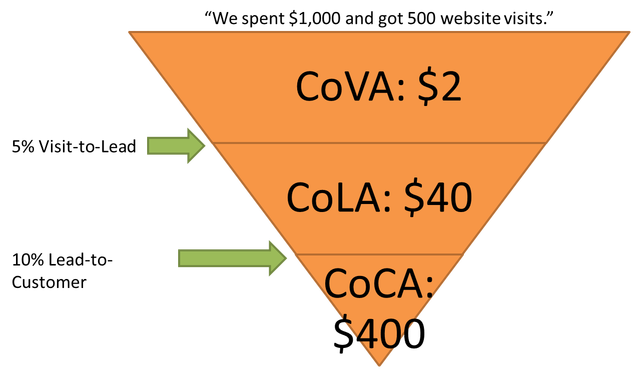
If 10% of your leads end up becoming your customers, it means you have spent $400 to acquire a single customer.
How much do you think this customer will spend on average for your business during their time as a customer? If it’s less than $400, then you’re wasting money.
Conclusion
Your Google AdWords campaign requires attention and when you watch out for these mistakes, you’ll be able to convert more people into customers at a lower cost.

![16 Google AdWords PPC Mistakes That Waste Time and Money [and How to Avoid It]](https://www.cardinaldigitalmarketing.com/wp-content/uploads/2018/10/high-converting-google-ads.jpg)